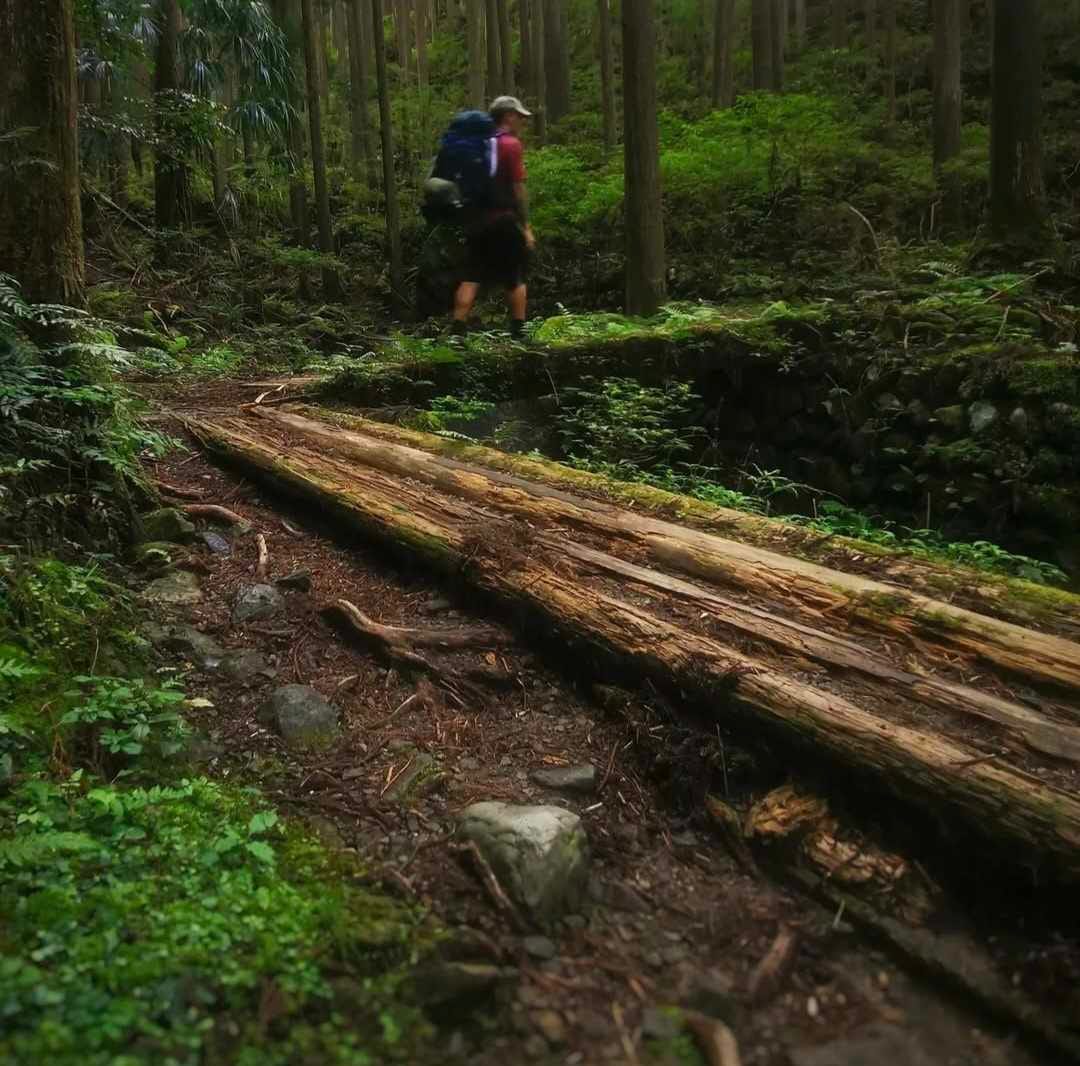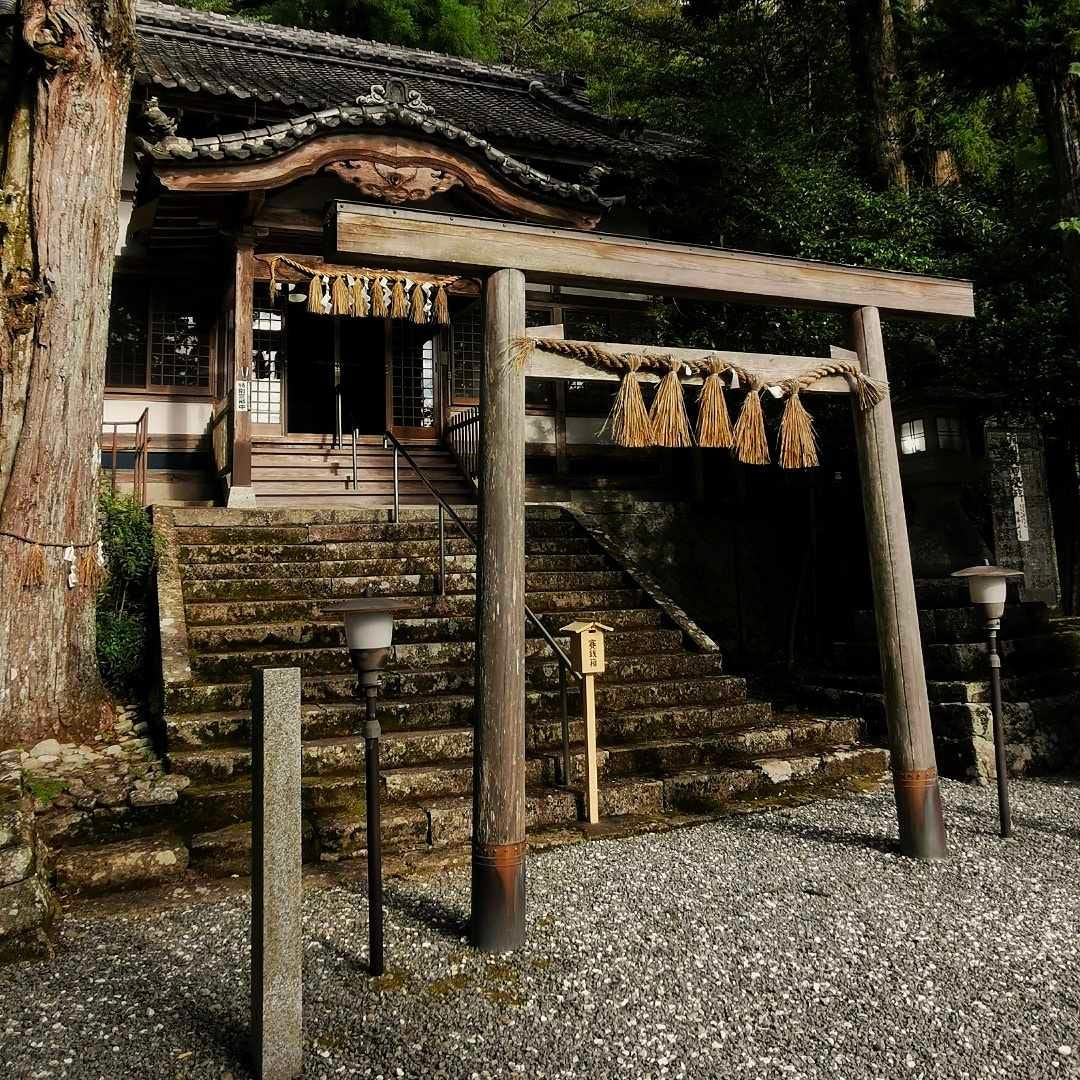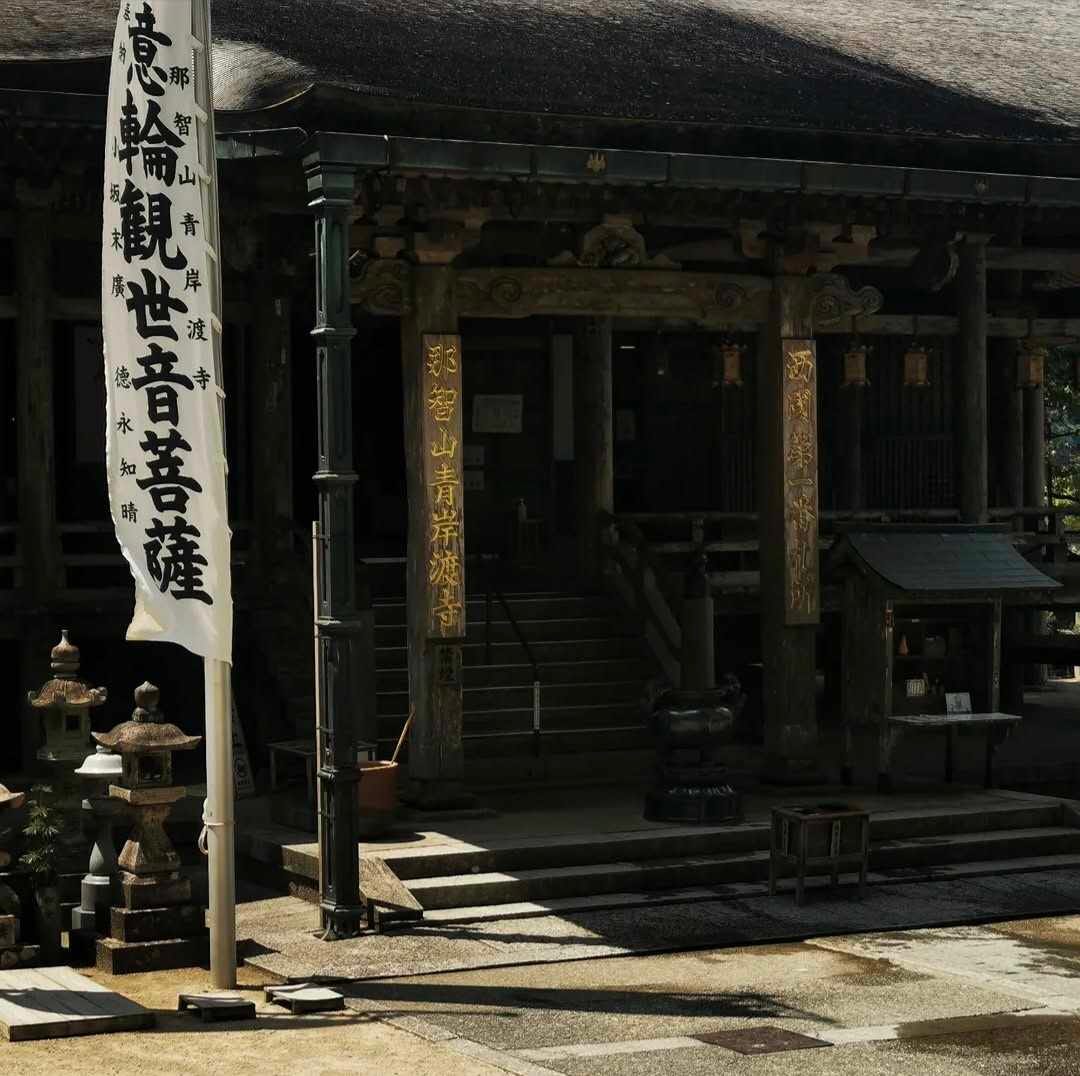The approach to Mt. Yakiyama follows an old farming road that runs through the forest towards abandoned plots of cropland. A cold mountain river runs from the peak down to the basin in front of my feet. Ahead of me, the water had eroded the path into a needle-thin line of river rocks that meandered further behind the thick tree line. Propane tanks and a few orphaned tires protruded from the violent rushing river. The sounds of the rolling stream were overshadowed by the symphony of cicadas buzzing in the humid morning. The deafening singing of the insects echoed in my head for hours, laying the foundation for long-lasting tinnitus. Along the path were the warnings for the encroaching Asian Black Bears, posted across every tree and fence post for the first hundred meters of the trail. With this in mind, I acquired the largest and sharpest walking stick I could find and set off into the bush for the accent up Mt. Yakiyama. Ironically, being Canadian had made me less bear-conscious than I might be at home in British Columbia. However, this was a foolish misconception. I immediately thought of the story of the man-eating bear in Hokkaido that ravaged a town and ate several of the inhabitants before being taken down. Or the tendency of the bears to swim many kilometers into the freezing sea of Okhotsk to search for food on the outer islands. At that point, Asian bears’ existence had been reserved for zoos, and in my imagination.
My sluggish steps up the southern face struck shooting pain up my legs like lightning climbing to my spine. The cicadas were screaming in a choir of dissonance. I watched as the snakes sat hooded under the felled trees watching my feet drag past them. I gripped my walking stick so fiercely that the skin around my fingernails swelled with blood and throbbed as they dripped sweat drop my forearms. I sat to rest a few hundred meters from the peak, defeated and immobile in the sweltering heat. I felt that off-kilter and heavy stride crunching through the leaves beside me, like a gentle rumbling in the earth around me. I sat on a rock cut overlooking the steep drop off down the face I had just ascended. Suddenly a large black and brutish body prowled past me. Its beautiful sun-yellow markings circled softly around its neck. The timid snuffles of its nose rubbed into the brush like a hungry dog. Unprovoked by my presence it ambled down the side of the mountain with clumsy yet delicate intention. Her markings were immaculate, a large female with a perfectly kept coat. Her presence exuded a silent authority, vixen-like. She feared nothing in her path and her intentions were clear. At no point could I have posed any threat to her, nor the sharpened stick in my hand. Her bestial femininity took bold ownership over the maze of the forest around us. I watched her follow the path as if she were another pilgrim, tracing my footsteps with her snout. I was deafened by my heartbeat thumping rapidly in my ears. After the bear entered the dark forest again I quickly shot up, full of fear and anxiety-based energy. I summited to the viewpoint, the sweat from my brow burning my eyes in the thirty-five-degree heat. For another moment I sat in the clearing, with tired eyes quickly darting around the treeline scanning for the potential return of the bear. I had to wait almost a full hour for the heat to pass its climax. The backside of the mountain was in direct exposure to the sun due to the clear-cutting of the brush. I had very little water left and had to conserve my energy for the steep decline down into the town of Owase.
The bear never returned, although the last few hours of the day I felt as though I would catch a shadow in my peripheral vision or hear the heavy crunching sound of its paws next to me. Owase was bathed in the golden light of sunset. This pastel gold coated every inch of the town as if it were El Dorado. The river ran parallel to the streets with a gentle and consistent trickling drone of water. Beautifully pruned flowers slowly closed with the slowly fading sunlight. I walked down the center path of the cemetery in the center of town. An older woman was at the opposite end near the exit replacing some flowers atop a headstone. Her grey eyes locked with mine momentarily as I entered the gate. Her stature was hunched and frail, she walked inch by inch with uncertainty in her footing. My feet had swollen and my back ached immensely. She raised her eyebrows and smirked at me as if to imply solidarity in that two of us were equally as crippled. The two of us found this silently amusing for a second before parting ways. This brightened my spirits enough for me to straighten my posture to make it to the train station where I was an hour early before the last train of the evening to Ise-Kashiwazaki. The ticket officer was keen to chat and entertain my broken Japanese, I was the only other person in the station so he periodically would come out to sit with me and smoke his cigarettes. For whatever reason he must have found me worthy of engaging with, despite my sweat-stained face and muddy clothing. I thought perhaps he was under the impression I was homeless and was deserving of some pity. Whatever the reason I enjoyed his company, it had been two full days since I’d said a single word to anyone. With this in mind, the menial conversation with a middle-aged Japanese ticket dispenser was riveting beyond my belief. My train slowly screeched as it entered the platform, the man escorted me to the door and gave a gentle set of bows before seeing me off for the evening. I gazed out the window beyond fatigued watching the lamp posts dart past me. The moonlight reflected over the dark and vast Pacific Ocean. The only light was coming from Owase in the distance or the occasional small home lying deep up one of the surrounding mountains. The slow and gentle hum of the train cradled me against the seat like a warm maternal embrace. The slight heat of the window pressed up against the back of my neck like a pillow. My stop was only a thirty-minute ride away so as soon as I was asleep I was re-awoken by the conductor urging me to exit the carriage. Reluctantly I gathered my things, thanked the conductor, and stepped onto the platform as the train departed behind me. Kindly blowing a cloud of warm and dirty air up my back as it exited. My accommodation for the night was a water treatment facility I’d found online that someone found a patch of grass to stay on eight years prior. I had believed said patch of grass must still exist and better yet that it was free. I could hear the humming and whirring of various tubes and generators from the facility in the distance and set off from the station into the night to find my patch of grass. In and amongst the large metal tubes and fencing of the building there was a section of greenery next to a large metal pit. No doubt full of grey water as the grass was overly lush and full of small flowers and moss. I set up my tent next to the blinding red light of one of the generators as it was my only light source in the area. This loud and bright industrial complex provided one of the most comfortable and homelike sleeping arrangements I could have hoped for. I draped my cap over my eyes and rested deeply until dawn. The following morning I would complete my section of the Iseji and arrive at Ise Grand Shrine in Mie prefecture. The most sacred shrine in Shinto.
The wooden walls creaked and groaned in the late July humidity. Screaming out an occasional pop that echoed through the silent forest. The Kannushi gingerly walked from shade patch to shade patch provided by the overhanging roofs, clutching their white garments above the dusty gravel paths. Behind a thin cloth veil of one of the entrances, an acolyte led several men in fitted suits and suede shoes through the towering sun-bleached torii gate. The air ran still and all sounds were hushed within the walls of the courtyard. With heat fatigued steps the men dragged their feet around the grounds, single profile into a circle. The priest clutched a large golden fan, and the men followed behind him clutching their suitcases with the same vocation. After several rounds of the yard, the men gathered shoulder-to-shoulder with military precise posture. From my position, I could see the sweat beads permeate through their cotton blazers. Although entranced in the ceremony, the heat was slowly poisoning each of them. Like a perfectly rehearsed performance, the men bowed in synchronization. They erupted into an amalgamation of unintelligible prayer. After a long breath in and moment of cathartic silence, the men straightened their ties and rubbed their brows free of sweat. Single file once more they headed down the path to the exit in front of me. Step by step in sequence like a troop of ants. The opening of the large main doors took two men to break the humid seal of the wooden lock. A warm breeze rushed in like a frenzied ghost. The bleached wooden beams of the door had been exposed to years of the direct summer sun, now towering like whale bones. Each log was stacked with precise intricacy, interlocking into the giant’s cadaver. Its rib cage was the keystone, hidden behind prude fig tree branches that bled green contrast into the monochrome. I lock eyes with the three-legged crow watching me, its beak sewn shut by the sweltering heat. Its songs will be saved for those still wandering across the Iseji.
.







